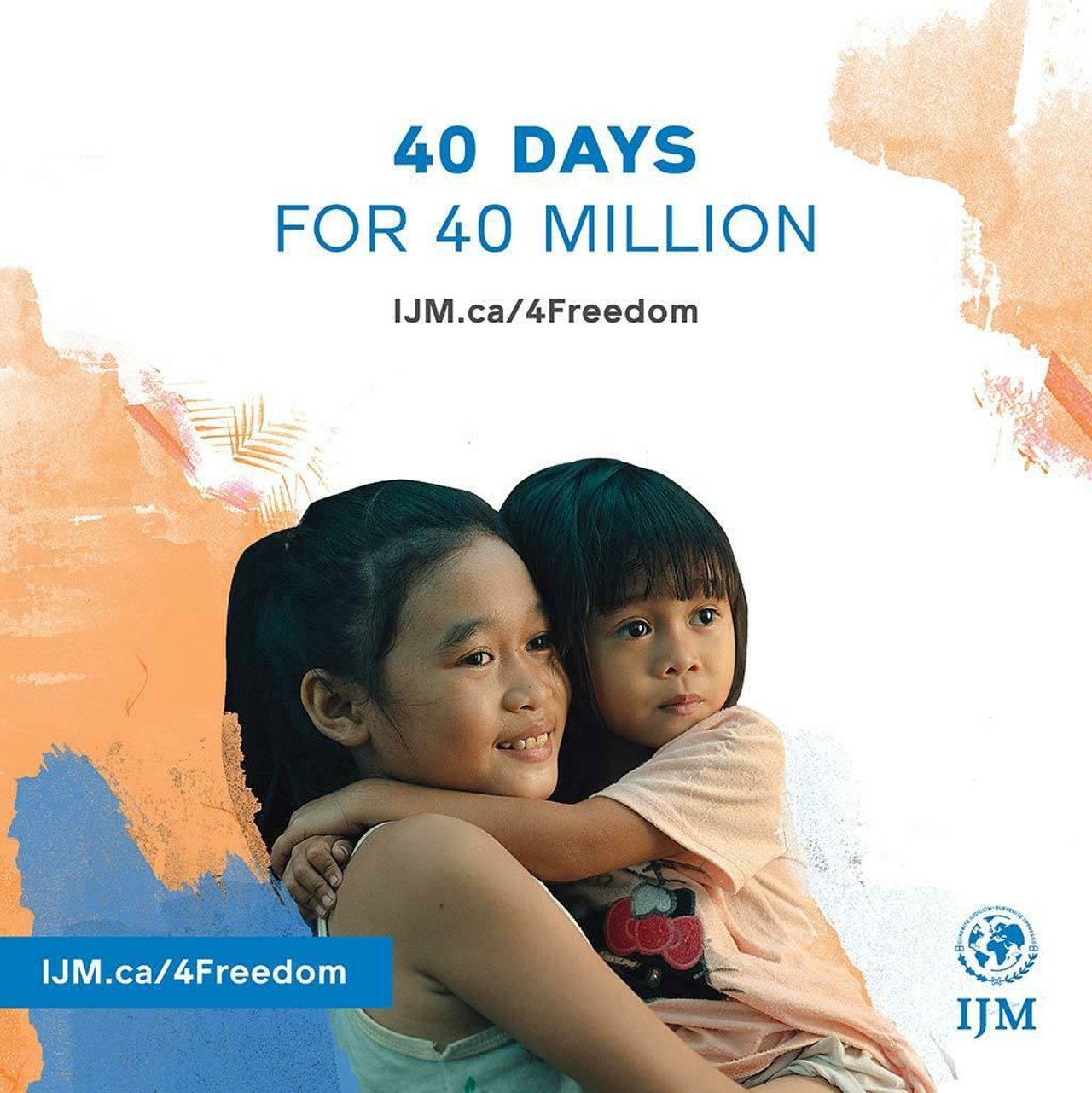
Give It Up For Freedom

How did you learn about IJM?
I don’t remember how I first heard of IJM, but I have been receiving periodic emails from them for a few years now, telling of encouragements and of prayer needs in the key areas where their staff are working.
I remember reading a few years ago about IJM inviting MPs and other influencers in Ottawa to a screening of “Amazing Grace”, the story of William Wilberforce’s fight to end the slave trade in Britain and its territories. That was a movie that impacted me deeply, so I have prayed periodically for IJM for a while, but no more engaged than that.
Why are you passionate about issues of injustice?
As I grow older, I am very impacted by Scriptures that talk of God’s hatred of injustice, and of His heart for those with no voice, no status, and of His passion to see people set free from every kind of slavery. When I was younger I don’t think I even noticed those Scriptures! Now when I read stories such as the ones that IJM tells in their email communications, my heart is broken for these people who through no fault of their own have become victims of such terrible abuse.
What have you learned from your justice journey?
My justice journey has made me aware of just how huge the issue of slavery is. It’s not confined to one or two countries, not confined to small groups of indebted people, not even confined to the so-called developing countries. It’s even here in Canada.
But I was shocked to read of how many of the products that we use every day – without thinking about it – actually are at risk of having involved slave labour somewhere along the supply chain. That was disturbing – and I haven’t yet figured out how to do life without things like a computer and a smartphone (at-risk products)!! However, it’s alerted me to the fact that I need to be more discerning as a consumer.
For many months now I have been researching the plight of widows in developing countries, and have discovered how many of them and their children end up as slaves because there are no means of supporting themselves when the father has died. And I keep hearing God’s call to us to loose the bonds of injustice, to undo the thongs of the yoke, to let the oppressed go free, and to break every yoke. It’s not optional. It’s God’s heart. And my privileged status as an educated and financially-self-sufficient white female means that I must do what is in my power to help set free those who are tragically disadvantaged.
What was one of your favourite moments from Give It Up For Freedom?
A favourite moment? Probably the first time I told someone what I was giving up and why, and shared a bit about the prevalence of slavery in our so-called progressive world. Their response was to say without any hesitation, “I’ll sponsor you”. And they whipped out their wallet and gave me some money right away. That experience was repeated several times, which made me realize that people don’t give to this cause because they don’t know, not because they don’t care.
I am blessed to be in the demographic that has always given to worthy causes: that’s one of the values we seem to have grown up with. And the majority of my contacts are people who are themselves very invested in giving to charities that they believe in, and volunteering. In fact, many of them are so invested that they sent me their apologies for being unable to stretch their dollars any further to give to this one.
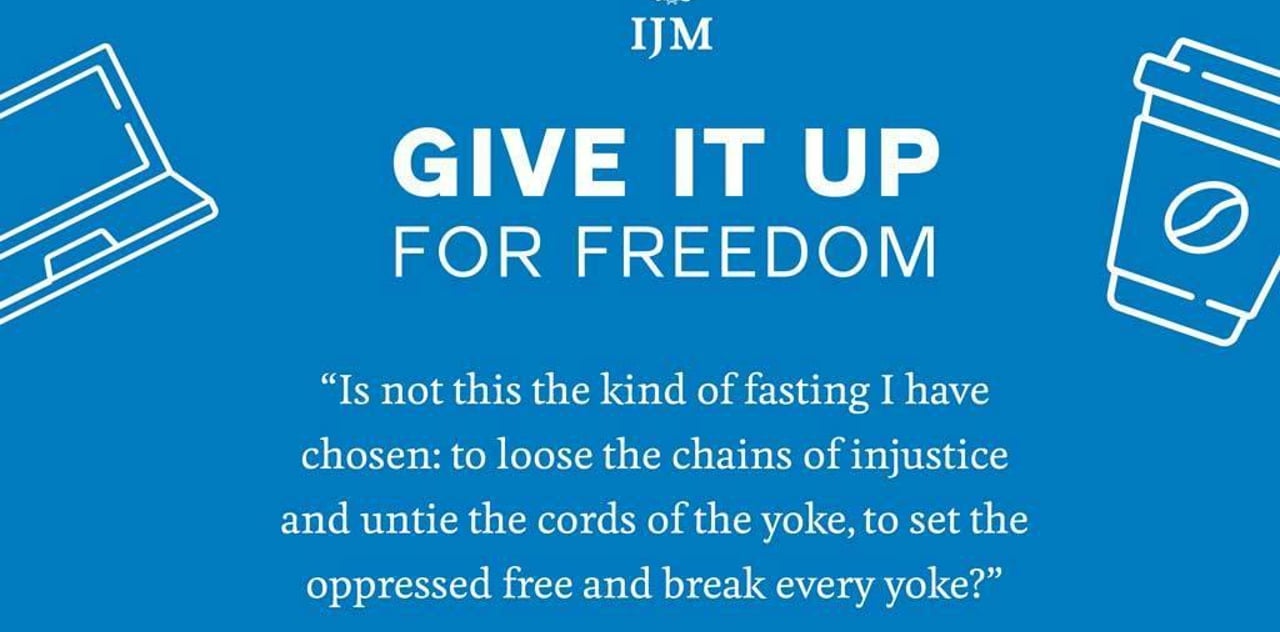
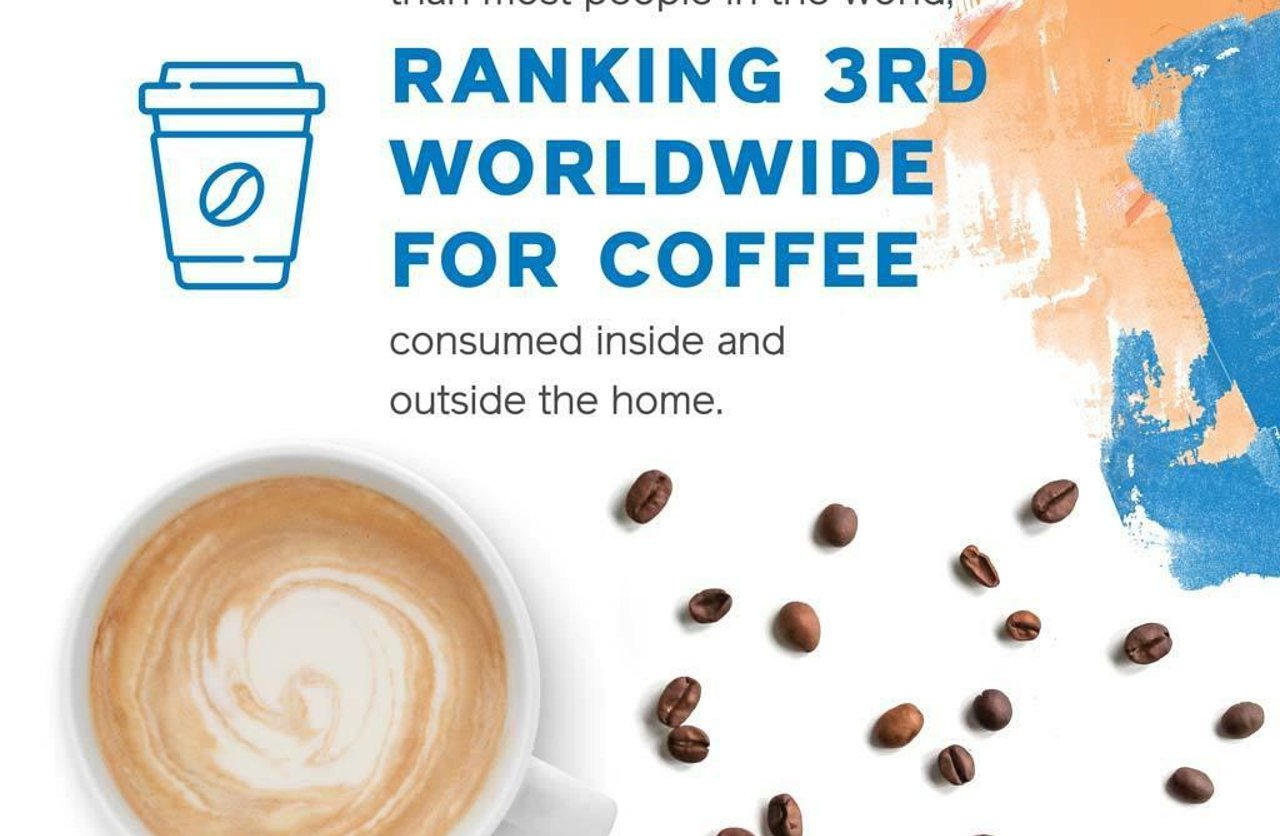
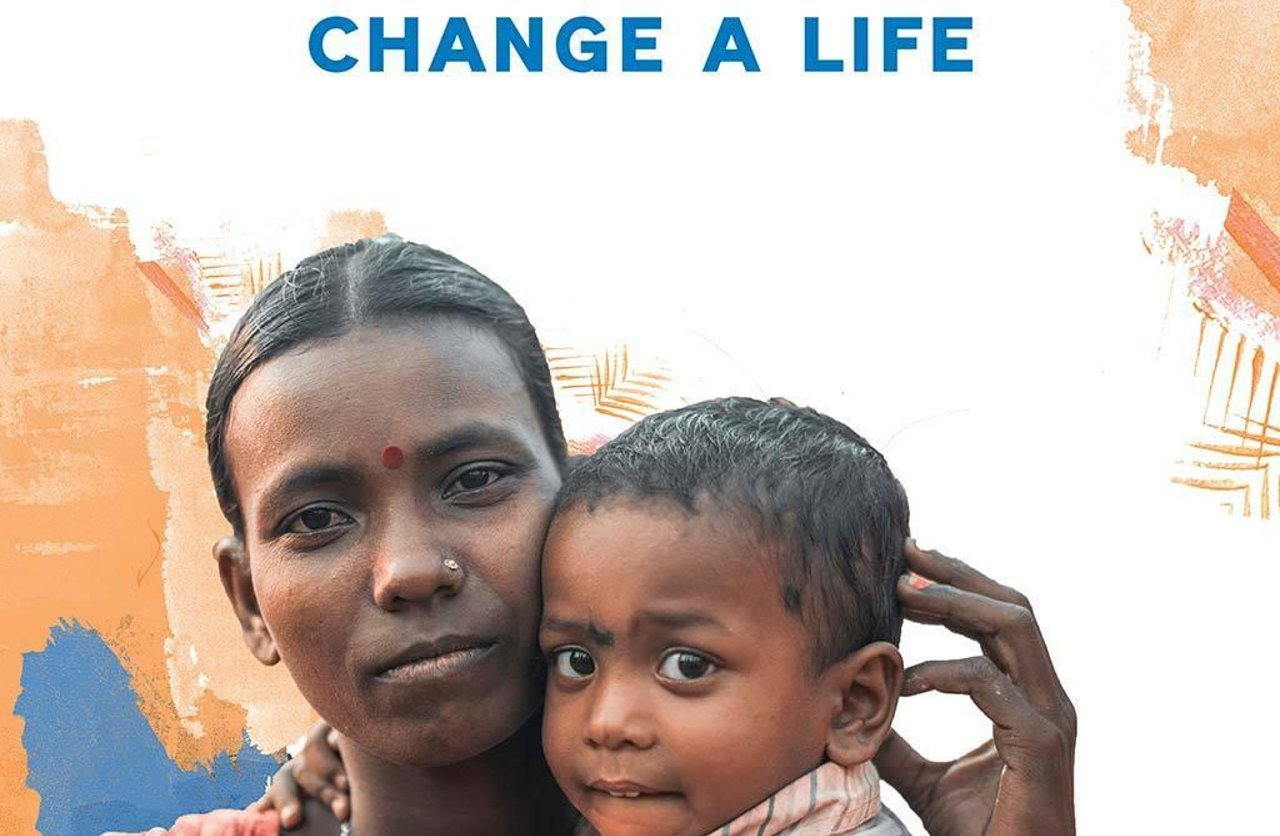

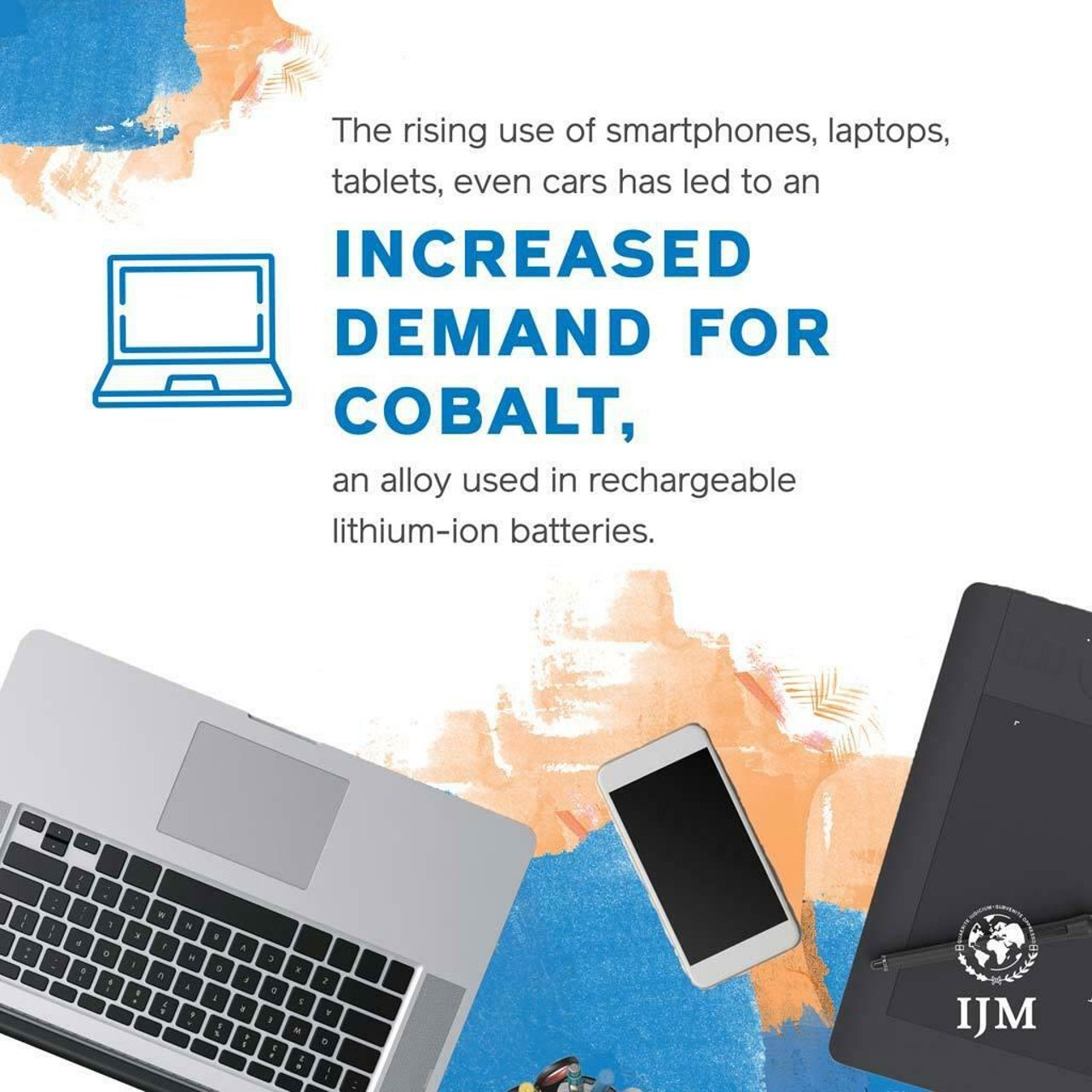
What have been some of the challenges you've faced?
For me the biggest challenge was using social media (LOL). I still haven’t figured out how to use Facebook to my advantage and I’ve completely ignored Twitter and Instagram and those other media that people talk about. It was a personal triumph when I managed to upload a couple of IJM videos onto my fundraising home page!! So the process stretched me in a number of ways.
What's the #1 tip you would give someone who wants to get involved?
#1 piece of advice? Do it!! There’s nothing like making a public commitment to motivate one to take action even if it makes you uncomfortable. I found through the 40 days that there were many times when, if I hadn’t made that public statement to my friends and family that I was giving up at-risk products during Lent, I would have caved in and poured myself a cup of coffee or indulged in a chocolate bar. And if I hadn’t committed to raising X number of dollars, I wouldn’t have exerted myself to get others interested enough to learn about the issue and to care enough to give.
I guess my other piece of advice would be, “Learn enough about the cause to become passionate”. I think those who responded to my letters and personal conversations were those who sensed the passion I felt about the issue. That’s why I chose to write my own letters, and just cut and pasted segments from the IJM letters. I wanted people to hear my voice and sense my passion.
What do you hope to accomplish in the next 5 years?
In the next 5 years: my focus will continue to be on widows specifically (I’m building a website about them), since in the majority world they suffer the most extreme abuse (even when they are not in slavery as such). And so I will be supporting IJM’s commitment to helping widows in Uganda get back land and livelihood that has been stolen from them, and IJM’s commitment to helping set free widows and orphans in South Asia slaving in horrible and hopeless conditions. With the added knowledge I now have about slavery, I know I will continue to challenge people to care and get involved themselves, and I know I’ll be giving it up for freedom again next year.
Who had the biggest impact on the person you have become?
A couple of months ago an IJM email featured the story of a 13-year-old girl in South Asia who had been lured into the sex trade, because her family was so destitute that she had to work to help support them. Her story has haunted me, not just because of what happened to her (and thank God she has been rescued and is in aftercare) but because she is just one of thousands like that. When I read her story I knew I had to get involved.
The others who have strongly impacted my desire to help set people free are William Wilberforce and Florence Nightingale. Both gave everything they had – their influence and wealth - along with the whole of their lives and their strength, to ensure that people were given the dignity and worth that they had been created with. They challenge me whenever I watch the movies about their lives.